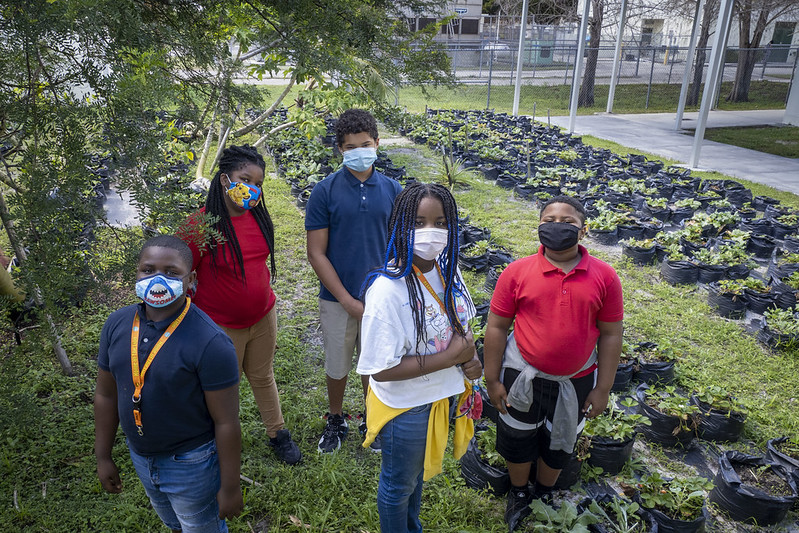“Actions are needed to make agriculture and food systems more attractive, profitable and rewarding for young people, and to increase their capacity to generate decent work and dignified livelihoods, especially in the current and post COVID- 19 context.” – Committee on World Food Security (CFS).
As the future of humankind and our food system, youth are confronted with multiple crises, including climate and environmental change, and global inequalities in food security, nutrition, employment and human well-being. But how to overcome these challenges and develop youth engagement and employment to foster sustainable food systems?
The 50th Session of CFS held from 10 to 13 October 2022 aimed, among others, to endorse the CFS Policy Recommendations on Promoting Youth Engagement and Employment in Agriculture and Food Systems for Food Security and Nutrition that was based on the HLPE report titled Promoting Youth Engagement and Employment in Agriculture and Food Systems. These voluntary and non-binding recommendations are principally intended for Governments to implement in collaboration with other pertinent stakeholders. They should be understood and come into effect in congruence with existing national and international law.
The significance of the recommendations
Nowadays, working in the agricultural and food sector poses some difficulties as it often does not provide decent work and dignified livelihoods, coupled to unbalance between different generations’ needs. To list a few challenges, workers within these sectors also experience restricted participation in decision-making processes, income uncertainty, poor remuneration, protracted crises, conflicts, and low social recognition. Many young people have inappropriate access to knowledge, technology, insurance, land, natural resources, infrastructure, markets, and finance. Consequently, many youths are reluctant to engage in a career in the agricultural or food sector. Rather, numerous are forced or feel that the sole option is to migrate to urban areas or abroad to exercise another profession.
Against this backdrop, the engagement and perpetual participation of young cohorts in sustainable agriculture and food systems is a cornerstone to nourish the resilience, competitiveness, inclusivity and vitality of these fields. Being a crucial actor in promoting the development of sustainable food systems, appealing, profitable and rewarding initiatives and strategies must be shaped in agriculture and food systems for young people, with careful regard to those in vulnerable and marginalised situations.
The policy recommendations from the CFS account for a key element to value and mobilise the energy and skills of youth in agriculture and food systems. Such a product aspires to enhance food security and nutrition and ramp up the sustainability of food systems.
Key elements to engage youth in food systems
The CFS drew on the framework of the HLPE to envision an ambitious, focused and action-oriented tool to support public policies. The measures are split into five distinct thematics:
- The provision of an enabling environment for youth engagement and employment in agriculture and food systems. A relevant initiative is to develop and strengthen policies that generate and strive for decent work opportunities for young people, in both individual and collective enterprises. Particular support must be assigned to young women farmers, smallholder farmers, and entrepreneurs.
- The securing of dignified attractive and rewarding livelihoods. Appropriate budgets must be allocated to provide an adequate standard of living, enabling access to healthy and sustainable food as it accounts for youth rights.
- The increase of equitable access of youth to resources, infrastructure and markets. As enshrined in UNDROP and UNDRIP, youth have rights to land, seeds and water. The development of capacity-building programmes strengthening youth’s connection and access to markets will foster their inclusiveness in the agriculture and food sector.
- The enhancement of equitable access to knowledge education and skills of youth. Gender-responsive and transformative education programmes must be promoted to ease the school-to-work transition.
- The fostering of sustainable and inclusive innovations for youth. Public policies and mutually agreed terms could help to improve equitable access to research results and technologies and build partnerships.
All national representatives mentioned their endorsement of these recommendations and will endeavour to implement them in their respective countries.
Both Sefu Sanni, coordinator of the Civil Society and Indigenous Peoples’ Mechanism (CSIPM) youth working group and member of the World March of Women, and Tylor Short, member of the CSIPM Coordination Committee for the Youth constituency, asserted that if States strive to implement the recommendations, there is a strong potential to enhance and enlarge youth engagement in agriculture and food systems.
They further expressed some reservations regarding these recommendations. They highlighted the lack of recognition dedicated to the transformative potential of moving from industrial food systems to more sustainable systems, such as pastoralism and agroecology. Rather, the policy recommendations perpetuate with industrial agriculture models, where Sefu Sanni stipulated that these practices are the main driver of young exclusion from food systems.
Final note
Ultimately, these recommendations are a substantive element to support policy-makers in decision-making. Indeed, it can provide concrete measures to promote youth engagement and employment in agriculture and food systems, and ultimately build more sustainable food systems. These policy tools must be interpreted and applied through context-specific and intersectional approaches since factors such as race, gender, location, socio-economic status, class, levels of education, citizenship and disability status, and ethnicity influence youth experience. Specific attention must be directed towards youth in vulnerable and marginalised situations. This policy product is a step forward to empower youth to enhance food sovereignty in deeming all current challenges, namely climate change, and social, political and economic instability. However, it is not exhaustive and needs further adjustments to build a prosperous future for the next generations.
Written by David Mingasson, SIANI reporter
